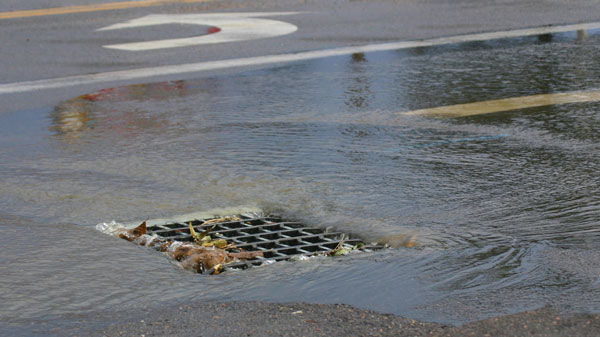Key findings from a 2013 survey sent to 237 Washington cities and counties to evaluate and better understand the status of municipal stormwater infrastructure have just been released.

Photo credit: Sno-King Watershed Council
Prior to the survey, minimal data had been collected and published to evaluate the status of existing municipal stormwater infrastructure. The purpose of this survey was to collect data from municipalities on stormwater infrastructure that is owned or operated by cities and counties, as well as the status of private stormwater infrastructure within their jurisdictions.
Of the 81 municipalities that responded to the survey, the primary need was for additional funding. Current funding sources – local stormwater utility fees, and state and federal grants – are inadequate to fund the backlog of needed improvements to retrofit existing infrastructure to current standards.
Another recommendation from survey respondents is to investigate regional solutions that could enable smaller municipalities (with very limited staff and funding) to develop partnerships with larger jurisdictions that have more resources available. Additionally, a regional education program for owners and managers of private stormwater infrastructure including homeowners associations, commercial, and industrial properties would help owners better understand stormwater impacts to downstream waterways and implement long-term strategies to maintain their stormwater systems.
Lastly, according to the survey report, educating the public about the importance of stormwater infrastructure and the role that stormwater utility fees play in funding programs and construction projects should be a priority. While most municipalities have stormwater utility fees, they are insufficient; and there is uncertainty whether there will be public support to increase rates to the level necessary to keep pace with the backlog of repairs and upgrades, especially in smaller cities with small rate bases.
70 percent of respondents rated the overall condition of their public stormwater infrastructures as fair or poor.
Some other key findings from the survey include:
- Two-thirds of respondents stated that less than 35 percent of their public stormwater infrastructure. drains to flow-control facilities designed to current design standards intended to support healthy aquatic ecosystems.
- Only 17 percent of respondents reported that they have adequate funding to meet the minimum standards for stormwater infrastructure.
- Half of respondents stated they do not have adequate funding for routine maintenance activities, such as inspections and cleaning.
- 36 jurisdictions identified a backlog of 515 projects that are unfunded, with a total cost of close to $1 billion. Based on this data, the backlog of stormwater infrastructure projects across the state could be in the range of $6 billion.
The backlog of stormwater infrastructure projects across the state could be in the range of $6 billion.
While some questions were too limited to provide enough information to make detailed conclusions, the survey has provided a useful initial assessment of the current status of municipal stormwater infrastructure in the state.